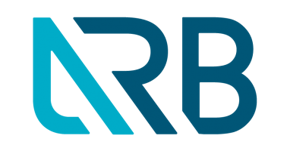
Safeguarding Your Business from Natural Emergencies
Protecting your business is critical, especially in the face of natural disasters such as hurricanes, floods, wildfires, and tornadoes. According to FEMA, about a quarter of businesses are unable to reopen after being hit by a major disaster. Potential costs can include repairing damaged buildings, replacing lost inventory, restoring business operations, and other increased expenses during recovery periods. Auto dealerships face unique challenges due to their large, valuable, and highly vulnerable inventories of vehicles. To safeguard your dealership and ensure a quicker recovery, a well-rounded disaster preparedness plan focused on financial readiness is essential. This plan should involve risk assessment, mitigation strategies, financial planning, and recovery actions tailored to the specific needs of automobile dealerships.
PARTNER SPOTLIGHT
Dealer Management System, Computer Technology, Media/Advertising, Automotive Auction, F & I/Aftermarket Products, Automotive Technology Training & Compliance
 A NHADA Gold PARTNER
A NHADA Gold PARTNERComputer Technology, Automotive Shop Equipment, Environmental Services
 A NHADA Platinum PARTNER
A NHADA Platinum PARTNERF & I/Aftermarket Products, Automotive Technology Training & Compliance, Environmental Services
.png?width=150&name=corp_logo_horz_on_light_with_trademark_symbol_1200w%20(002).png) A NHADA Diamond PARTNER
A NHADA Diamond PARTNERRisk Assessment and Mitigation Strategies
Start by identifying the natural disasters most likely to affect your region. Tools such as FEMA's National Risk Index or NOAA's local weather forecasts can help you evaluate potential hazards and guide your planning. This risk assessment will inform the strategies you implement to protect your facilities and inventory.
For your facilities, consider reinforcing buildings, adding flood barriers, or investing in backup generators to minimize property damage and reduce operational downtime. When it comes to your vehicle inventory, explore options like moving cars to higher ground, raising them on platforms, or preparing to temporarily relocate them to safer locations when severe weather is anticipated.
Financial Planning and Insurance
Comprehensive insurance coverage is another crucial element of your disaster plan. Review your policies to ensure that you have proper protection, including coverage for flood, earthquake, and hurricane damage, as well as business interruption. Gaps in your coverage could leave you vulnerable to significant financial losses in the aftermath of a natural disaster.
Alongside robust insurance, it's prudent to establish a financial safety net. This can take the form of an emergency savings fund with several months' worth of operating expenses or a pre-approved line of credit. These resources can help you cover urgent operational costs, pay employees, and begin repair work before other sources of aid become available.
Employee Safety and Preparedness
In addition to physical and financial preparations, employee safety and preparedness are paramount. Create a clear disaster response plan that includes procedures for employee evacuation, emergency communication, and securing the facility. Regularly train your staff on these protocols and maintain up-to-date contacts for key personnel, insurance agents, and emergency services. This will help streamline your response and recovery efforts when disaster strikes.
Unique Considerations for Automobile Dealerships
Because of the highly valuable inventory involved, automobile dealerships face unique challenges that set them apart from many other businesses and require specific considerations when faced with disaster. Persistent maintenance of detailed records of your vehicle inventory should include photographs, serial numbers, and locations. Storing this crucial data securely offsite or in the cloud can ensure that it is not lost due to physical damage at your dealership. Additionally, establish pre-arranged agreements with logistics companies to quickly relocate vehicles to safer areas before a disaster, which can significantly minimize damage to your inventory.
Be mindful of the increased risk of theft and fraud during natural disasters. Ensure that your dealership's security system is robust and capable of functioning even during power outages, deterring potential looters. Additionally, be cautious of fraudulent schemes involving the sale of damaged vehicles as undamaged in the aftermath of a disaster.
Financial Assistance and Support
Several resources are available to help dealerships financially prepare for and recover from natural emergencies. The Small Business Administration (SBA) offers low-interest disaster loans, including funding for mitigation projects. The National Automobile Dealers Association (NADA) also provides financial assistance to dealership employees affected by these events. Furthermore, FEMA and state-level programs may offer rebuilding support, temporary relocation services, tax relief, or grant programs to aid in your recovery efforts. Knowing what programs are available, which apply to your specific circumstances, and how to access these programs can be a difference-maker at a critical juncture for your business.
The Road Ahead
By establishing a comprehensive disaster preparedness plan that addresses the unique needs of automobile dealerships, you can mitigate the impact of natural emergencies and ensure the continued success of your business. With the right financial safeguards and recovery strategies in place, you'll be better equipped to protect your dealership, employees, and future revenue when disaster strikes. Consider consulting with a financial advisor who specializes in risk mitigation for automobile dealerships to help you create a tailored strategy.
Please contact our Dealership Services team members for more information.
Author: Barton Haag, CPA




















.png?width=150&name=Ally_Final%20Logos%20and%20Pairings_11.14.2018-01%20(2).png)


-2.png?width=150&name=Wipfli%20Logo%20Blue%20RGB%20(1)-2.png)


.jpg?width=150&name=NHADA_Partner_FTR_Img_NHADA_Insurance%20(1).jpg)


.jpg?width=150&name=NHADA_Partner_FTR_Img_JMA(1).jpg)

